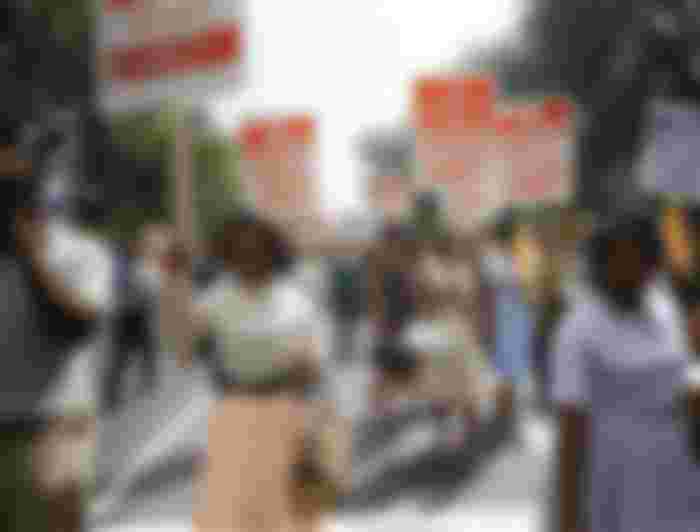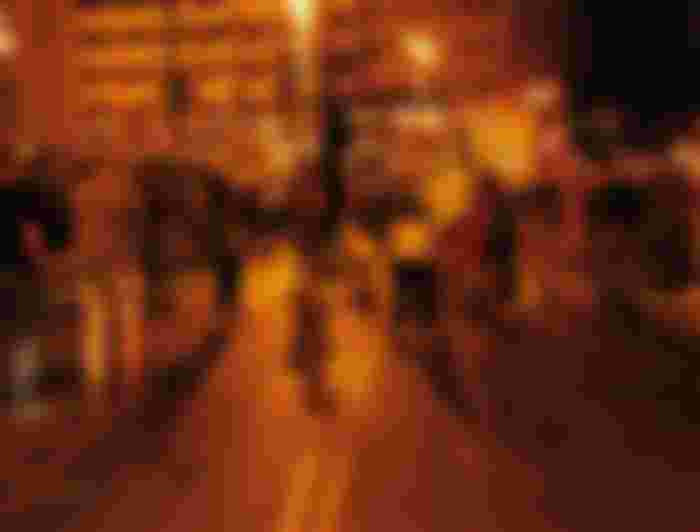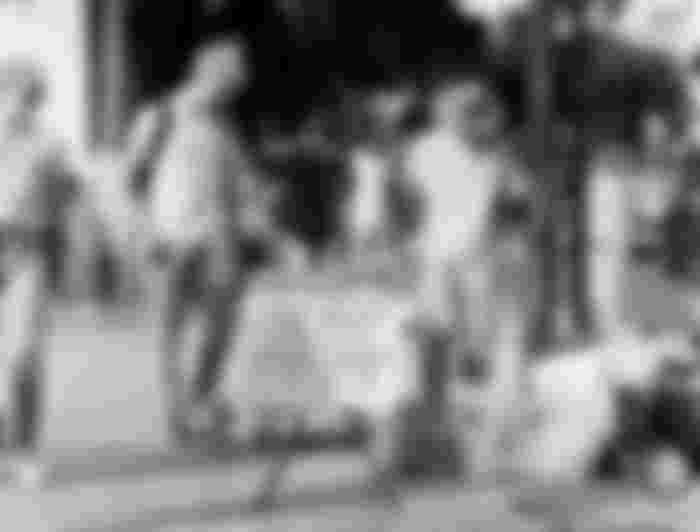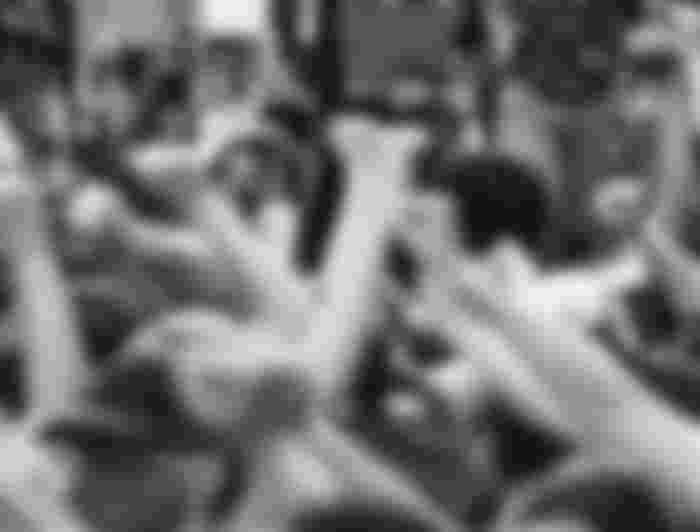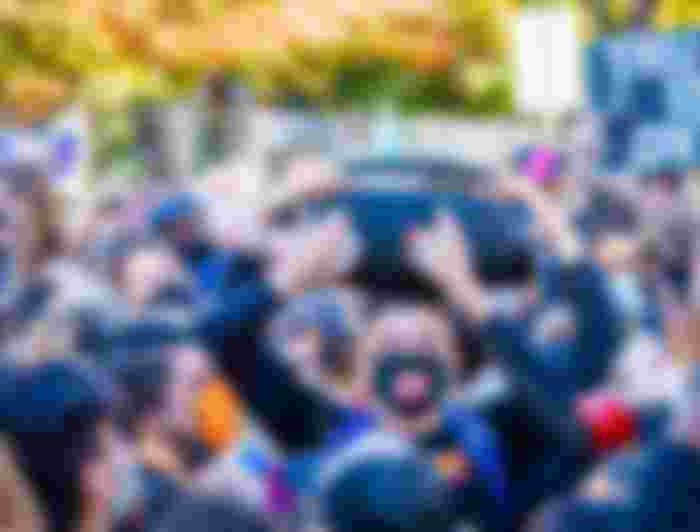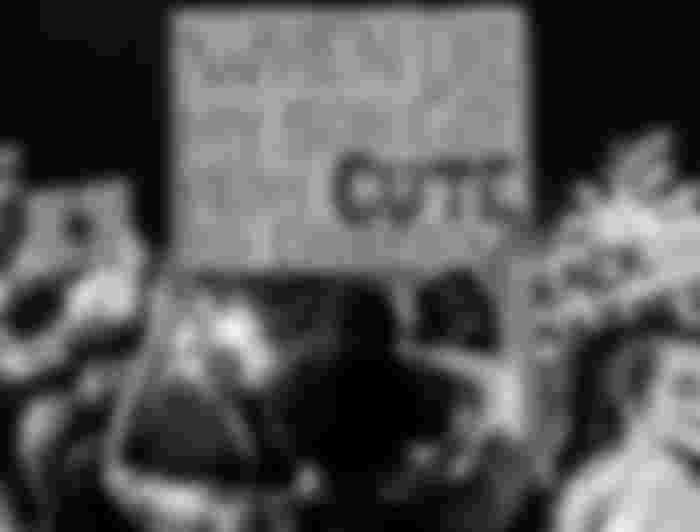The concept of democracy
Defining democracy in language
Democracy is a two-syllable Greek word. The first syllable (Demos) means people or the people, and the second syllable (keratin) means the rule. Thus, the concept of democracy refers in language to the rule of the people or the rule of the majority.
Defining democracy idiomatically
Democracy is defined idiomatically as a system of government, where the supreme power is in the hands of the people, who exercises their powers directly, or through a group of persons elected to represent the people by relying on a free electoral process, where democracy refuses to make power complete and concentrated in one person, Or over a group of people such as a dictatorship, or the oligarchy (rule of minorities).
President Abraham Lincoln defined it as “the rule of the people, by the people, for the people,” and in the present era, the democratic system of government has become the preferred system of government in all societies; This is due to the ability of community members to articulate their choices about both managing public governance in the country, allocating resources, and participating in the administrative process.

An expert definition of democracy
The concept of democracy differs according to the place, time, and circumstances of its use. The following is an explanation of the concept of democracy as defined by some experts:
Jim Kilcullen:
Jim Kilcullen believes that democracy means rule by the people themselves and that it contradicts the rule of minorities. He also made clear that any democratic city should meet the following criteria:
City affairs are subject to the House of Representatives
All male citizens belong to it.
That the decision-making process is based on the majority vote of the people.
Andrew Heywood:
Andrew explained that democracy has many forms, and defined it as the effective participation between the government and the people, and their cooperation for the sake of the general interest of the country.
Dr. John Hearst:
Dr. John Hurst points out that democracy is a society's right to full sovereignty.
Joseph Schumpeter:
For Joseph Schumpeter, democracy is an institutional system designed to enable individuals to make political decisions based on voting.

The history of democracy
Democracy has been applied in a primitive way in different parts of the world since ancient times, as the forms of authoritarian rule and minorities were the forms of rule prevalent at that time, and the beginning of the application of democracy goes back to the Greeks and Romans, where the first official model of democracy was applied in the city.
The Greek Athena in the fifth century B.C. The Athenian model was distinguished from the rest of the systems by the application of direct democracy, which takes place through the meeting of the people, their discussion of government issues, and the implementation of political decisions without the need to elect representatives for them, and what helped this type succeed is the ease of its application, Due to the small number of people directly participating in politics, at that time only males participate in politics, while women, slaves, children, and foreign citizens are excluded.

Athenian democracy was implemented from three sides, namely: the Demos Assembly, the Council of Five Hundred, and the People's Court. Laws were enacted through the Council of Five, the Demos Assembly, and a group of councils devoted to legislation.
Democracy was practiced in Magna Carta in England in 1215 A.D., at that time a document called the Great Document was issued, which provided for the protection of the people from abuse that they were subjected to by the feudal lords and even exposed the king to legal accountability. During the seventeenth and eighteenth centuries, democracy began to spread, and at present democracy in its various forms has spread all over the world, yet it is difficult to have two completely identical systems of democracy, just as it is difficult to find a single democratic model; Various forms of democracy appeared, such as federal, presidential, and those that depend on the percentage of the vote, or the majority vote.

Freedom and democracy
The concept of democracy is more comprehensive than freedom, and the reason behind this is that democracy includes a set of ideas and principles centered on freedom, in addition to having a wide range of procedures and political practices that have been formed over long periods, and it is worth noting that there are a set of principles that society must possess To call it a democratic society, it was tested by both human rights and constitutional rule.
Pillars of Democracy
The infrastructure for democracy can be supported through some pillars and pillars, ranked according to their importance as follows:
Elections:
Legitimacy is added to democracy through fair and free elections, as they are a way to prevent some from favoring their private interests over the public interest and to limit the monopoly of power in favor of a certain group.

Political tolerance:
Its importance lies in achieving sustainable development and reaching a general benefit for all societal groups, without turning a blind eye to any of them.
The rule of law:
There is a close relationship between democracy and the application of the law, as citizens can judge the legitimacy of the government after subjecting the political process to laws and placing it within a regulatory framework.
Freedom of expression:
Freedom of expression denotes freedom of society, and a free press that allows individuals to discuss various issues is considered evidence of the democracy of the political system of that society.

Accountability and transparency:
The government that was elected by the people is accountable to it, and to verify its achievements and fulfill its duties, such as providing health services, fuel pricing, or other measures, there should be neutral institutions in the state to evaluate this, as independent judicial authorities.
Decentralization :
Encourages decentralization of citizens to become more aware of to participate in democracy, and contribute to reducing the influence of political forces, and indicates the extent to which the government closer to the rule of the people, and the success of democracy within the decentralization should be the availability of human resources and the efficiency of the institutional, financing decentralized.
Civil Society:
Civil society includes many activities and participations such as groups that care about specific issues, community forums, clubs, charitable societies, or unions, in addition to a wide range of volunteer work and other activities that fall within civil society, which in turn help the growth of Popular democracy in society.

Types of democracy
There are three main types of democracy, and they will be explained as follows:
Direct democracy
Direct democracy is one of the types of democracy in which the people vote on any of the political decisions directly and without the need for any of their representatives, and any decision issued by the government must be presented to citizens to vote on it, and for these citizens, The first role is to determine the fate of their country, for example, the issue of raising taxes, as the state has no right to raise its value without the presence of popular support that supports this decision.
Direct democracy can be applied in small countries that have a low population density and less ignorance, in addition to the society itself being interdependent and homogeneous, especially about the political sphere, and Switzerland is one of the countries that successfully practice this type of democracy, where the people meet in days Specified to vote on the issues of interest to them, and the issues are presented and raised by parties specialized in this regard.

Indirect Democracy :
Indirect Democracy is the most widespread in all parts of the world, and in this type, a group of individuals is voted to represent the people in Parliament, where the experiences of the individuals who have been elected are used to make decisions while continuing The rest of the people have other duties, which in this way protect the rights of the majority of the people, and help protect the rights of minorities by providing the opportunity to elect a highly qualified person. However, this type of democracy may be exposed to certain problems, such as electing governments that fail to achieve the interests of their citizens. Creating initiatives or referendums to solve this problem, such as those applied in direct democracy.
Pluralist democracy :
Individuals in a pluralist democracy join organized groups to discuss common political issues, as the individual identifies issues of interest to him, and joins groups that discuss these issues to support them, and the groups, in turn, gain important political support to defend their interests. The American political system is one of the systems that implement a pluralistic democracy. It is made up of groups that greatly influence the political decisions that are made in the country, and that contribute to supporting their positions on a specific issue.

Various forms of the democratic system
There are many forms of a democratic system, including:
Presidential democracy:
The president is elected in a presidential democracy, and he cannot be removed except through exceptional procedures, and the president has the right to object to any legal proceeding unless the Legislative Council revokes his right to object by voting.
Parliamentary democracy:
Parliamentary democracy is one of the forms of representative democracy, in which a legislative body (Parliament) is elected and the authority is assigned to it, and it is worth noting that the executive authority and the legislative authority are closely linked together. The Legislative Council has the right to dismiss it by withholding confidence in it, and it is worth noting that merging the executive and legislative power within parliament helps to provide an opportunity for members of any party to vote in parliament on party grounds.
Authoritarian democracy:
In an authoritarian democracy, the so-called elites are chosen to represent the interests of society, as they are part of the electoral process, and after selecting the candidate, he is voted for by state members, whose role is limited to that. They are not allowed to be among the candidates to compete in the elections.

Participatory democracy:
Participatory democracy provides a great possibility for citizens to participate extensively in politics and take political decisions, and this form differs from direct democracy, as direct democracy allows citizens to make direct political decisions, as they are responsible for making those decisions, while participatory democracy provides opportunities for citizens to influence On political decisions, and not taken directly.
Social democracy:
Social democracy emerged in the late nineteenth century, to reform the capitalist system and the organization of the state by providing services and care, such as health services, and making education available to all citizens.
Representative democracy:
This term was launched by the Argentine political scientist Guillermo O'Donnell, and he expressed it in an article he published in 1999. Representative democracy implies that anyone who can reach and win presidential elections is entitled to exercise his powers according to his convictions, and what he deems appropriate without the presence of Any restriction on his powers.

Deliberative democracy:
Interested in deliberative democracy with the participation of all members of society, whether citizens or residents making political decisions and participation in the affairs of governance, They see that those decisions must recognize after logical and fair discussions among all citizens, as it encourages them to discuss it and test it critically, as it is concerned with the process of communicating information to all citizens so that it is available to them and open to discussion. It pushes them to think to get results that matter.
Digital democracy:
This form is concerned with the digital world, so that it takes advantage of different digital media when practicing the different forms of democracy, whether online or offline.
Constitutional democracy:
It is a system of government based on popular powers, and the constitution is responsible for everything related to government and politics, such as constitutional powers.

Unconstitutional democracy:
Unconstitutional democracy allows the government to take any decision without oversight, which may lead to violating individual rights without being held accountable or punished since this form is not subject to any constitutional rules that set it.
Federal democracy:
The powers are constitutionally divided between the political units (province or state) and the central government authority, as each is allowed to impose a set of laws and decisions on citizens without allowing the national government to intervene without their consent.
Unitary democracy:
Constitutional authority is administered by a single central government, knowing that the central government includes a group of administrative departments that exercise decisions and powers issued by the central government only.

Liberal democracy:
Liberal democracy is based on classical liberal ideologies that call for freedoms at the economic and civil levels within the principles of the rule of law, and individuals in this democracy enjoy many rights, such as the right to participate in political activities, vote, and the right to own property, and liberal democracy has many forms. Such as the parliamentary system, the constitutional or republic monarchy, and the presidential system.
Totalitarian democracy:
Totalitarian democracy was developed by the historian Jacob Talmon, who believes that totalitarian democracy allows the government to impose its control over all subjects related to citizens, without involving them or obtaining their support, and any attempt to object is confronted, under the pretext of preserving the public interest.

The Pros of Democracy
Societies that implement a democratic system of government are distinguished by several advantages, the most important of which are:
Preparing good citizens:
Democracy is an ideal political system, which aims to prepare good citizens by providing an ideal environment that helps to acquire good qualities and develop a positive personality. The democratic system also provides a large field for individuals to fully know their rights and duties.
Protecting the interests of citizens:
This is by granting them the right to vote for those who will represent them in the government, on various issues, whether political, economic, or social, and protecting them from implementing decisions they do not agree with.
Achieving equality:
The democratic state deals with all its citizens on an equal footing and guarantees them their political, economic, and social rights. It also achieves justice and equality before the law and prevents discrimination between individuals due to differences in religion, class, gender, or other matters.

Preventing the monopoly of power:
The government exercises its powers within a specified period so that it is assured that the government's policies are in the interest of the people.
Stability of the government and its commitment to responsibility:
The government is elected under democracy through elections, which makes the elected government more responsible, so that its members perform their duties to the fullest, in addition to the discussion and study of various issues and problems that contribute to taking appropriate decisions. Effective, stable, and stable government.
Promoting change:
The democratic system helps citizens reach a stage of satisfaction through their participation in choosing governments, and the ability to change them.
Developing the political awareness of the people:
When elections are held, candidates and political parties propose programs and policies, which are disseminated through various means of communication, to gain the support of citizens, which increases their political awareness.

The disadvantages of democracy
Despite the advantages of the democratic system, some disadvantages may result when applying democracy, namely:
The issuance and implementation of decisions in a democratic system, and the drafting of laws, takes a long time compared to systems that take decisions and implement them without the need for voting.
A lot of money can be wasted to support election campaigns, and it gets worse when irresponsible individuals assume positions of power, who contribute to losses of public money without caring for the interest of the homeland.
Some individuals may resort to unethical and corrupt practices to gain power, to achieve their interests without caring for the interests of citizens.
The democratic system focuses on providing a large number of services without concern for their quality at times, in addition to the fact that the provision of services may take place unjustly between the poor and the rich.
Individuals who are irresponsible and unable to manage the government may be elected in light of the social and political conditions in their countries, and this leads to improper decisions taken and contrary to the interest of the homeland.
Unethical matters may be practiced by candidates to obtain high rates of votes, such as misusing money to obtain more votes, or using force to influence the people, or tarnishing the image of a candidate and rival parties.

Democracy goals
Democracy aims at the following:
Achieving equality among all citizens when achieving their interests, and considering their opinions without prejudice to anyone.
Protection of all kinds of public freedoms and human rights.
The application of a democratic system helps to exclude dictatorial and authoritarian regimes and obviates their application in societies.
The people govern themselves. Democracy allows the people to choose their government, and thus the extent of their satisfaction with the government depends on their choices because they are the ones who make this choice.

The difference between communism, capitalism, and democracy There is a difference between communism, democracy, and capitalism, as each of these concepts refers to a different system from the other, so capitalism is an economic system in which ownership of the society's various means of production is dependent on individuals or private organizations, and the government has no right to own them, or set prices for products or How to distribute it, but through competition in the free market.
This contradicts the principle on which the communist economic system is based, which is considered a political and economic system at the same time.
As for democracy, it is not considered an economic system like capitalism and communism, but rather a governmental system, in which power is in the hands of the people, where the people exercise their powers by choosing whoever represents them after Periodically holding free elections.

International Day of Democracy
The fifteenth of September of each year was chosen to be the International Day of Democracy, and during this day the democratic situation is evaluated all over the world, and to reach the ideal and realistically level of democracy, it is important to consider democracy as a complete process, and not just a goal that should be achieved. The efforts of the international community, national administration bodies, individuals, and society must be joined together and supported.
